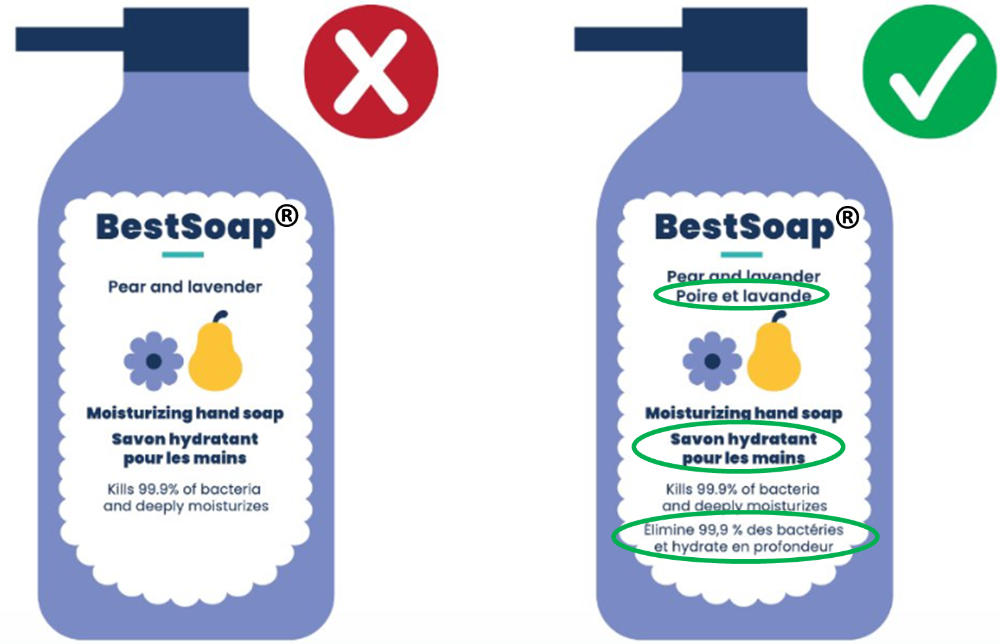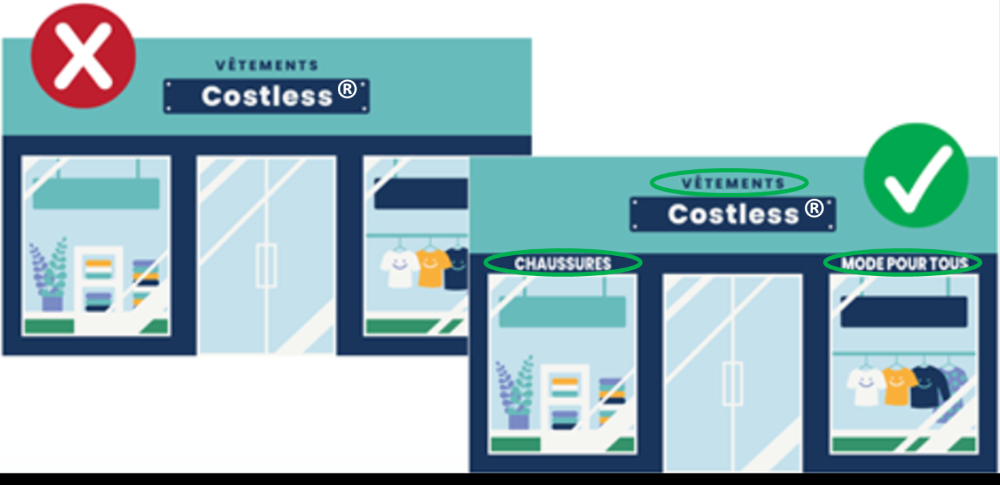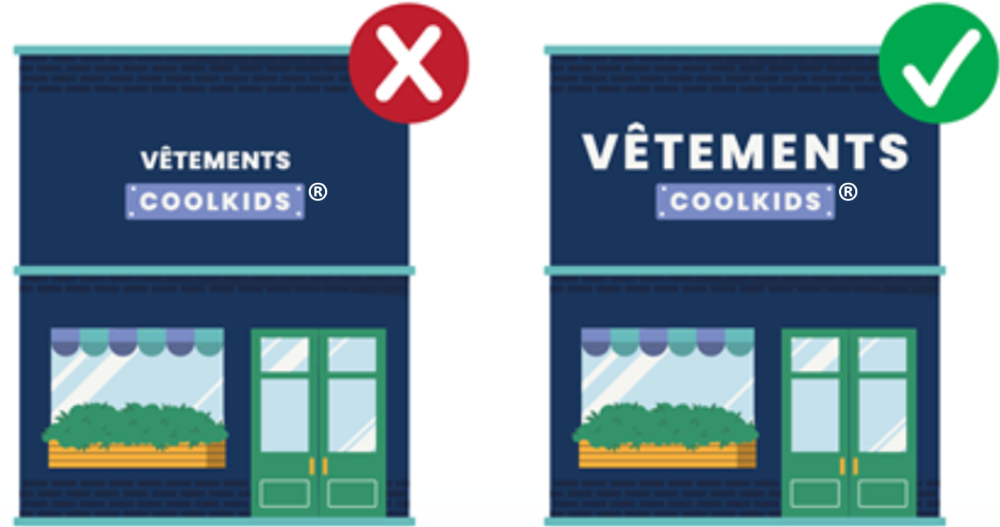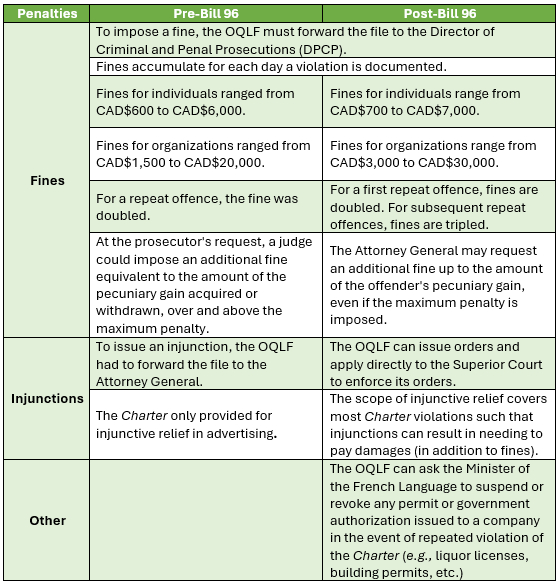- within Intellectual Property topic(s)
- with readers working within the Retail & Leisure industries
Overview of Bill 96
Bill 96, an amendment to the Charter of the French Language ("Charter") in Quebec, aims to reinforce the use of French in business settings. This bill affects anyone distributing, selling, renting, or otherwise marketing a product in Quebec.
Bill 96 takes effect on June 1, 2025. Organizations can sell non-compliant products until June 1, 2027, provided that the non-compliant products were manufactured outside of Quebec before June 1, 2025.
Trademark Compliance
Product Inscriptions & Trademarks
Bill 96 requires that all product inscriptions be in French. Optionally, inscriptions in other languages may also be included provided that the text in any other language is not given greater prominence than the text in French. For example, the other language(s) cannot appear in larger text and cannot be more easily visible on the product (e.g., the French text cannot be more difficult to find, such as on the bottom of the product). This applies to any text found on a product, its packaging, or documents supplied with the product, such as user manuals or warranty documents.
EXCEPTION: Recognized trademarks (i.e., registered and common law trademarks) can appear in English, without a French translation, provided that no corresponding French trademark exists.
However: If the trademark includes a generic term (i.e., referring to the nature of the product) or a product description (i.e., describing characteristics of the product), that term must appear in French on the product or permanently attached to the product.
The name of the product as sold and the name of the organization selling the product are exempt from translation requirements.
Example: In Figure 1, consider that the organization has recognized trademarks "BestSoap" and "BestSoap: Pear and Lavender". The name of the product, "BestSoap", does not require a French translation. However, the terms "Pear and lavender" must be translated into French (i.e., "Poire et lavande") because these terms are descriptive of the product. Note also that all of the text in French is equally as visible as the corresponding text in English. That is,the size and placement of text in French is comparable to the size and placement of text in English.

Figure 1: Company has recognized English trademarks "BestSoap" and "BestSoap: Pear and Lavender".
Public Signage
Public signs and commercial advertising outside of retail premises must be in French. Other languages may also be used, but only if French is markedly predominant.
To ensure that French is markedly predominant, follow the 2x Rule:
- Space allotted to French text should be 2x as large; or
- Size of French text should be 2x as big;
- Dynamic signage should display French text 2x as long or 2x as often.
EXCEPTION: Recognized trademarks (i.e., registered and common law trademarks) can appear in English, without a French translation, provided that no corresponding French trademark exists.
However: If displaying a recognized trademark in another language, French must still be markedly predominant in the same visual field.
Example: In Figure 2, consider that a clothing store has a recognized English trademark "Costless". To ensure French remains markedly predominant, French expressions "VÊTEMENTS", "CHAUSSEURS", and "MODE POUR TOUS" are also included in the compliant image (right). In accordance with the 2x Rule, the combination of these French words takes up at least 2x as much signage space as the English trademark.

Figure 2: Clothing store has recognized English trademark "Costless".
In Figure 3, consider that a clothing store has a recognized English trademark "COOLKIDS". To ensure marked predominance, the French word "VÊTEMENTS" is written in a larger font size in the compliant image (right). According to the 2x Rule, the font size of the French word is at least 2x the font size of the English word.

Figure 3: Clothing store has recognized English trademark "COOLKIDS".
Penalties for Non-Compliance
Under the new regulations, the Office québécois de la langue française (OQLF) will follow a structured process when addressing non-compliance.
The first step in addressing non-compliance is an initial intervention where the OQLF communicates with the organization or individual alleged to have breached the regulations. This communication from the OQLF may be issued as an initial or subsequent notice, a "warning", or a "pre-order". If the parties can reach an agreement on remediation measures and the OQLF's interventions are deemed complete, the complaint file will be closed.
If the complaint is not resolved after the initial intervention, the OQLF may escalate the matter further. To impose a fine, the OQLF will submit the file to the Director of Criminal and Penal Prosecutions (DPCP). In the event of repeated violation of the regulations, the OQLF can ask the Minister of the French Language to suspend or revoke a permit or government authorization that was issued to the offending organization (e.g., liquor license, retail and restaurant permits, building permits, etc.).
Below is a summary of the potential penalties for non-compliance with the new regulations:

Take Aways
The new provisions under Bill 96 will have a significant impact on businesses operating in Quebec. To ensure compliance, businesses should promptly review their trademark portfolios and verify that all trademarks appearing on signage, posters, and other commercial advertising are properly "recognized" in Canada. Obtaining a trademark registration is the best way to ensure that a business's trademark is considered "recognized" in Canada.
The content of this article is intended to provide a general guide to the subject matter. Specialist advice should be sought about your specific circumstances.


